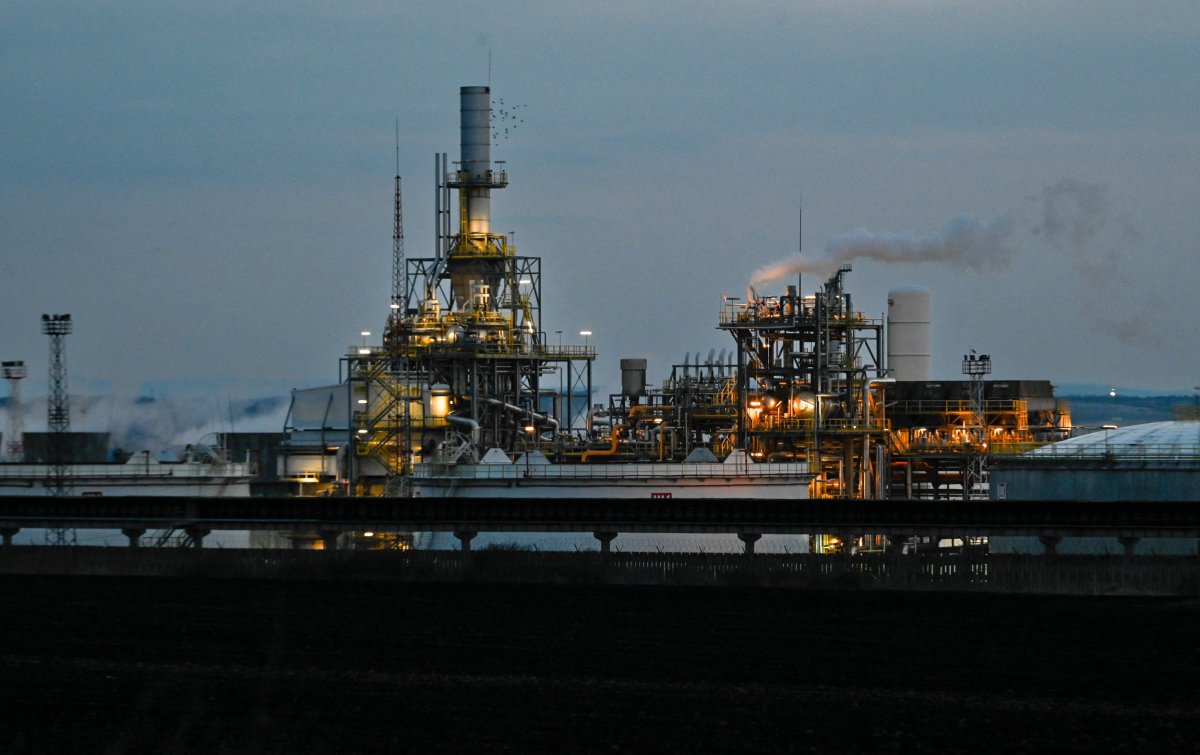EU member Bulgaria has moved to block oil imports from Russia as part of the bloc's embargo in response to Russian leader Vladimir Putin's full-scale invasion of Ukraine.
Bulgaria, which was one of the few countries exempt from an EU-wide embargo on Russian oil imports until the end of the year, switched to alternative fuel sources, effective March 1, following a vote by parliament in December, Bulgarian news outlet Novinite reported.
Historically allies with Russia, the Balkan country was, prior to the war in Ukraine, nearly completely dependent on gas and oil imports from Moscow. Reuters reported in January that Bulgaria was replacing Russian oil imports with crude from Kazakhstan, Iraq and Tunisia. Newsweek has contacted Russia's Foreign Ministry for comment by email.
The move will serve as a blow to Moscow, which depends on its oil exports and energy industry; they make up some 30 percent of the country's budget revenues, and fund the ongoing war in Ukraine. Russia is the world's third-largest producer of oil, accounting for more than 12 percent of global crude-oil production, according to Statista.
Last year, Bulgaria was the fourth-largest buyer of seaborne Russian oil, Reuters reported. Prior to the import ban, Russian oil would be kept at its Burgas refinery in Bulgaria, which is operated by Russian oil giant Lukoil and has a daily capacity of 190,000 barrels.

The energy industry is considered a crucial lifeline for Putin's economy, which has been hit hard by Western sanctions imposed in response to the invasion of Ukraine. When U.S. President Joe Biden announced a ban on Russian oil imports in March 2022, weeks into the full-scale war, he said the move would target the Russian economy's "main artery."
The G7, the EU and Australia also imposed a price cap banning firms from insuring, financing, and shipping Russian seaborne oil exports sold above $60 a barrel.
After losing European buyers, Moscow boosted its trade with China, India and Turkey. Russia has offered them discounts, but payments difficulties and Western sanctions left tankers with 10 million barrels of Russian Sokol crude stranded off South Korea in January, Newsweek previously reported.
Reuters reported on February 19 that three of the stranded tankers with Russian Sokol oil—NS Century, NS Commander and Nellis—had started to move towards China and India, leaving some 7.5 million barrels of Sokol oil stranded at sea.
Do you have a tip on a world news story that Newsweek should be covering? Do you have a question about the Russia-Ukraine war? Let us know via worldnews@newsweek.com.
Uncommon Knowledge
Newsweek is committed to challenging conventional wisdom and finding connections in the search for common ground.
Newsweek is committed to challenging conventional wisdom and finding connections in the search for common ground.
About the writer
Isabel van Brugen is a Newsweek Reporter based in Kuala Lumpur. Her focus is reporting on the Russia-Ukraine war. Isabel ... Read more
To read how Newsweek uses AI as a newsroom tool, Click here.






